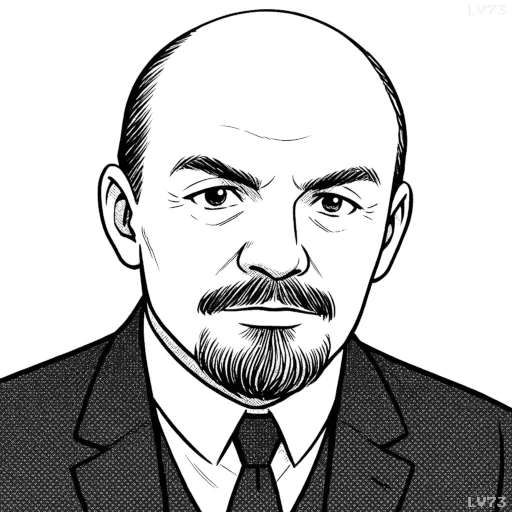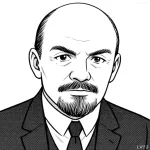“When one makes a Revolution, one cannot mark time; one must always go forward – or go back. He who now talks about the ‘freedom of the press’ goes backward, and halts our headlong course towards Socialism.”

- April 22, 1870 – January 21, 1924
- Born in the Russian Empire
- Revolutionary, political theorist, lawyer, state leader
table of contents
Quote
“When one makes a Revolution, one cannot mark time; one must always go forward – or go back. He who now talks about the ‘freedom of the press’ goes backward, and halts our headlong course towards Socialism.”
Explanation
This quote reflects Lenin’s conviction that revolutions demand decisive and relentless forward momentum. For Lenin, revolutionary change cannot be static, as it requires constant action to advance towards the goals of socialism. The reference to freedom of the press illustrates his belief that in the early stages of a revolution, certain freedoms (like press freedom) must be restricted to prevent counterrevolutionary forces from undermining the socialist movement. Lenin saw the press as a potential tool for reactionary forces to distract or mislead the masses, and thus believed that prioritizing revolutionary objectives — such as consolidating power and advancing socialist goals — was far more important than liberal democratic freedoms during such critical times.
Historically, this quote must be understood within the context of Lenin’s leadership during the Russian Revolution of 1917 and the subsequent civil war. After the Bolsheviks took power, they faced significant opposition from both domestic and foreign forces. Lenin and the Bolshevik party adopted strict measures to control information and suppress dissent, including limiting press freedom to avoid destabilizing the new regime. While this approach was justified by Lenin as necessary for the survival of the revolution, it also marked the transition from a revolutionary, democratic struggle to an authoritarian state — one where the security of the socialist state was deemed more important than the open debate of ideas.
In modern terms, this quote sparks debate on the balance between political freedoms and the need for revolutionary or state action during periods of crisis. Authoritarian practices — such as restricting freedom of speech or controlling the media — continue to be justified in certain political contexts as necessary for protecting the state’s interests or advancing revolutionary goals. However, Lenin’s argument raises important questions about how far political leaders should go in curbing freedoms in the name of revolution and whether such measures undermine the core democratic values that revolutions are often meant to promote. This tension between security and liberty remains relevant in modern political discourse.
Would you like to share your impressions or related stories about this quote in the comments section?
